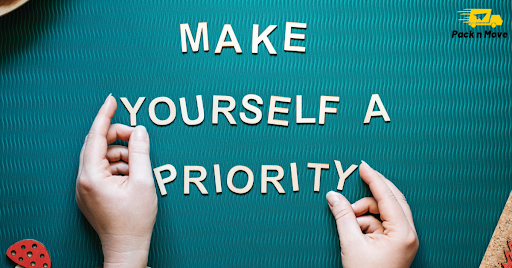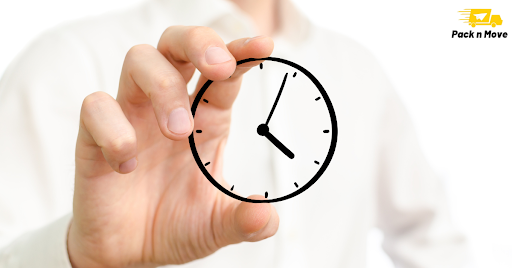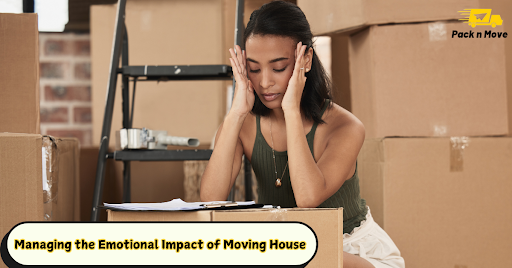Moving is more than just packing up brown boxes and shifting belongings; it’s a bold step that stirs up a range of emotions. This article dives deep into the emotional challenges people face during a house move and provides strategies to handle this unique emotional rollercoaster.
Common Emotional Triggers When Moving House
Change and Uncertainty
Moving to a new house, city, or even area means stepping out of your safe space. The emotional turbulence of leaving behind familiar walls and routines can feel unsettling. Change brings a sense of the unknown, which can be overwhelming, causing stress and worry.
Separation from Familiarity
Leaving friends, family, and your well-worn daily routine behind can spark feelings of sadness and loneliness, especially if it’s a long-distance move. These connections are part of what makes your current place feel like home, and saying goodbye can be tough.
Financial and Time Pressure
From removal costs to stamp duties and taking time off work, the financial and logistical aspects of moving add pressure. Navigating finances, conveyancing fees, and deadlines can increase anxiety, leaving people stretched thin both emotionally and financially.
Mental Health Effects of Moving
Short-Term Stress and Anxiety
Relocating often leads to stress and anxiety. Common symptoms include a negative mindset, constant worrying, and even physical symptoms like aches and pains. Recognizing these as temporary can help, but it’s still important to address them.
Impact on Mental and Physical Health
The combination of emotional and physical demands can take a toll on your mental health and body. The physical wear n’ tear of packing, lifting, and organizing, coupled with emotional stress, can lead to exhaustion, which sometimes feels like a form of relocation depression.
Strategies to Cope with Moving Stress
Recognize and Accept Your Emotions
Instead of brushing off emotions, acknowledging and accepting them can ease the emotional toll. It’s normal to feel nervous or even sad; recognizing these feelings helps to process them better.
Involve Family in the Process
Making moving a team effort with family members can lessen the burden. If everyone pitches in, it not only makes the move smoother but also creates positive feelings and moments of bonding amid the hustle.
Seek Social Support
Talk to friends, family, or even professional advice from a therapist if you’re finding it hard to cope. Having someone to share your concerns with can be a great relief and a reminder that you’re not alone in this.
Preparing Yourself for the Move
Decluttering and Organizing
Before boxing things up, consider decluttering to reduce what you’ll need to carry. Letting go of excess belongings can feel liberating and make the transition smoother.
Creating a Checklist and Timeline
A list of tasks, deadlines, and contracts can keep you organized, giving you a sense of control and structure, which reduces stress and keeps things running smoothly.
Focusing on Self-Care During the Transition

Setting Boundaries and Taking Breaks
With so much to do, remember to take breaks. Setting boundaries and avoiding the urge to do everything at once can prevent burnout and keep you grounded.
Maintaining Favorite Routines
Continuing some of your usual habits can be comforting. Whether it’s a morning coffee ritual or a workout, familiar routines provide a sense of stability amidst all the change.
Embracing New Experiences and Opportunities
Exploring Your New Environment
Seeing your new neighborhood as an adventure can ease the adjustment. Take time to explore local clubs, social venues, and education options for family members, creating positive experiences that help you feel at home.
Making New Connections
Building new relationships with new neighbor friends or coworkers can help you feel integrated. Start with a friendly chat or invite a neighbor for coffee to ease the transition.
Staying Connected with Loved Ones After the Move
Using Technology to Stay in Touch
Staying close to friends and family is easier than ever with technology. Video calls, social media, and messaging apps make it simple to keep up, even with long-distance relationships.
Planning Visits and Future Reunions
Setting future dates to meet loved ones or planning reunions can give you something to look forward to, which makes the separation feel more manageable.
Give Yourself Time to Adjust

Being Patient with the Adjustment Process: Allowing Emotions to Settle
Adjustment takes time, and it’s okay if it doesn’t happen overnight. Allow yourself to go through this change without pressuring yourself to “get over it” quickly.
Looking Forward to Long-Term Benefits
Moving is a new chapter and a bold step. While it may be emotionally taxing, this transition can also be a chance for personal growth, new friendships, and exciting opportunities.
Conclusion
In the end, moving house isn’t just about a change in location; it’s about navigating life events and embracing a new beginning. Recognizing the emotional challenge and giving yourself grace through the process can turn this move into a stepping stone for resilience and growth.
Frequently Asked Questions (FAQs)
- How can I reduce moving-related stress?
Creating a checklist, enlisting help from home move specialists, and taking breaks can significantly lower stress during a move. - What are some common emotions felt when moving?
Many people feel a mix of stress, anxiety, sadness, and excitement when moving. Recognizing these emotions is the first step to coping with them. - How can I stay connected with friends after a long-distance move?
Use technology like video calls, messaging apps, and social media to maintain bonds. Also, planning future visits helps with the transition. - Why do I feel sad after moving?
It’s common to feel sad due to leaving behind familiar places, friends, and routines. This emotional response is normal and tends to fade as you adjust. - Are there professional services to help make moving less stressful?
Yes, hiring home move masters or home setup services can ease the logistical load, leaving you more time to handle the emotional aspects of relocating.
